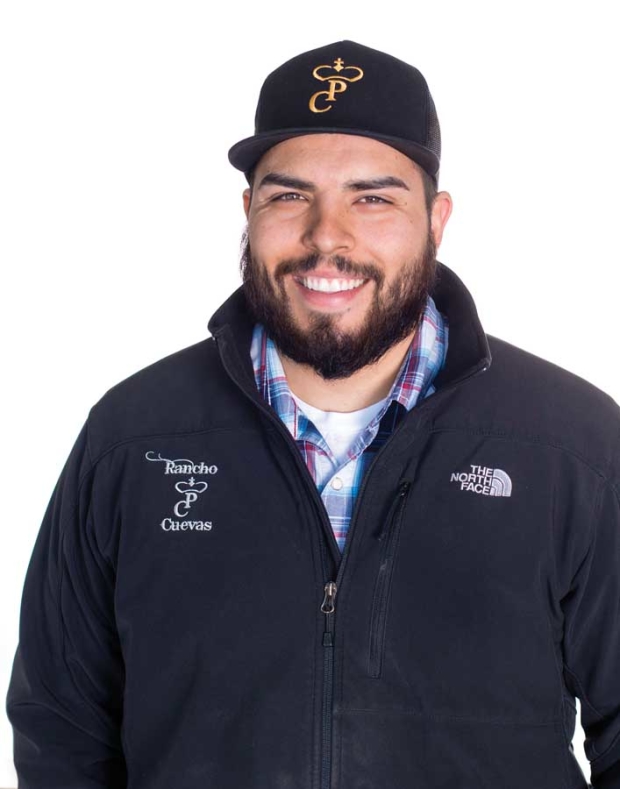 grower / Royal City, Washington
grower / Royal City, Washington
age / 25
crops / Cherries, apples
business / Part owner of Rancho Cuevas orchard and fieldman with CHS Sun Basin
other experience / Graduated Wenatchee Valley College in horticulture
How did you get your start?
I started when I was very, very young. I was 7, 8 years old and we would be out working because we didn’t have much to eat or many toys. We didn’t have much to do but work, so I would help Dad changing water, moving bins around, learning how to drive the Hyster forklift and tractors. Basically, doing whatever I was asked to do.
What would you say about working alongside your father?
My Dad would always tell me when we’d work together that he didn’t want to see me where he’s at, at his age. Even though he’s been successful doing what he’s done, he didn’t want to see me working day and night, seven days a week in the orchard. That’s why I looked for a job that was more Monday through Friday/Saturday kind of job where I could get some time off to be with family.
What are advantages for growers doing these newer techniques?
The nice thing about taking stuff to the soil lab is they’ll tell you if it’s deficient or if it’s over. Knowing that part of the science takes a lot more knowledge. I’m not that knowledgeable on soils just yet, but it’s nice having the lab there so I can work better to improve the results.
What are some of the common problems you are seeing when you work with other growers?
The biggest thing I see is pruning issues. A lot of the time you’ve got to base your pruning on available sunlight for the fruit. I see plenty of guys who aren’t doing that. Or the orchard owner will pay their crews to do the pruning, without them going through checking it’s being done right. The other big issue is deficiencies. Here in Royal City, we have a lot of caliche areas, where there’s potassium deficiencies. Growers here have to take soil samples from those areas to figure out what they need to add to the soil. We also have a lot of sand as well. That impacts how you manage your water. I’ve seen, what they call are drought spots in apple orchards, because they aren’t managing their water systems right.
What about stuff you’d like to improve at your family farm?
There’s a lot of new things being done now and one of the things I’ve liked is the high density cherry orchard technique. Because you can manage it easier, get higher volume and also install rain and hail protection on it. It’s awesome. Another thing I’ve been looking at is a super-spindle planting system for apples. It’s a very high density planting where trees are six-inches apart. You get double the volume that you would normally get from a 12 inch or two feet spread planting. It’s a straight, upright row, so dense barely no sunlight is coming through those rows. I’ve seen it mostly as a 10 by six. It’s a different rootstock, a different planting system, but I’ve seen it work. A lot of people like it and a lot of people don’t.
What would you tell someone who wants to become a grower?
First thing I’d say is you’ve got to love what you are doing. If you are doing it just because of the money — it’s just not there. You’re never going to find the end to it. If you love what you do, you’ll never work a day in your life, right? That’s the biggest thing for everybody. I went into growing because I love doing it and I have no regrets. If my friends asked me why I went into it, I’d say the science that goes into growing a tree is pretty awesome.






Leave A Comment